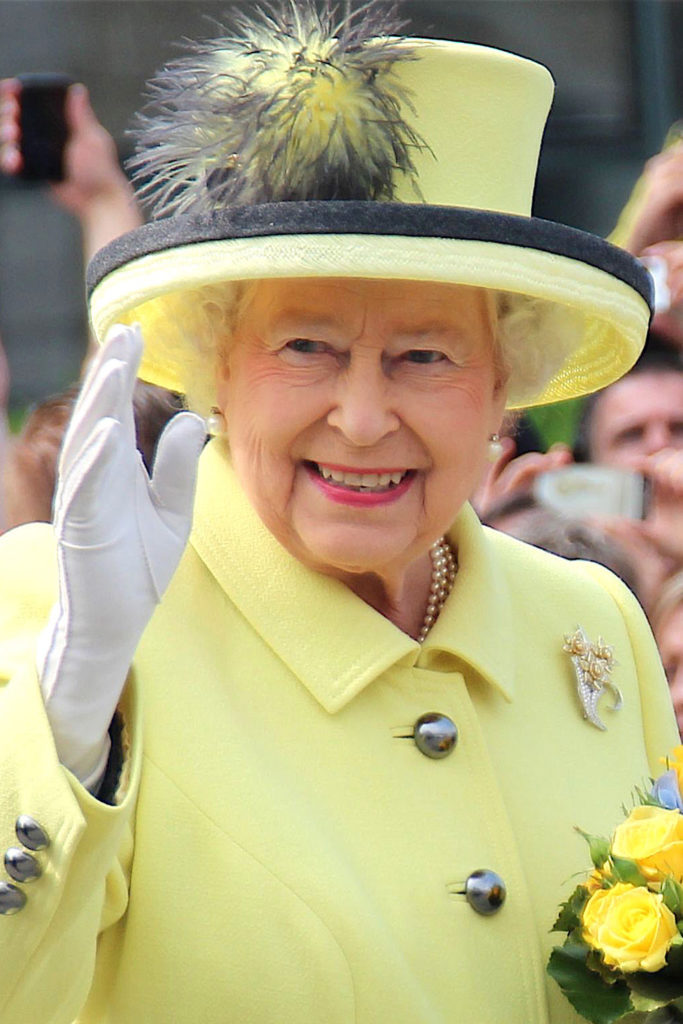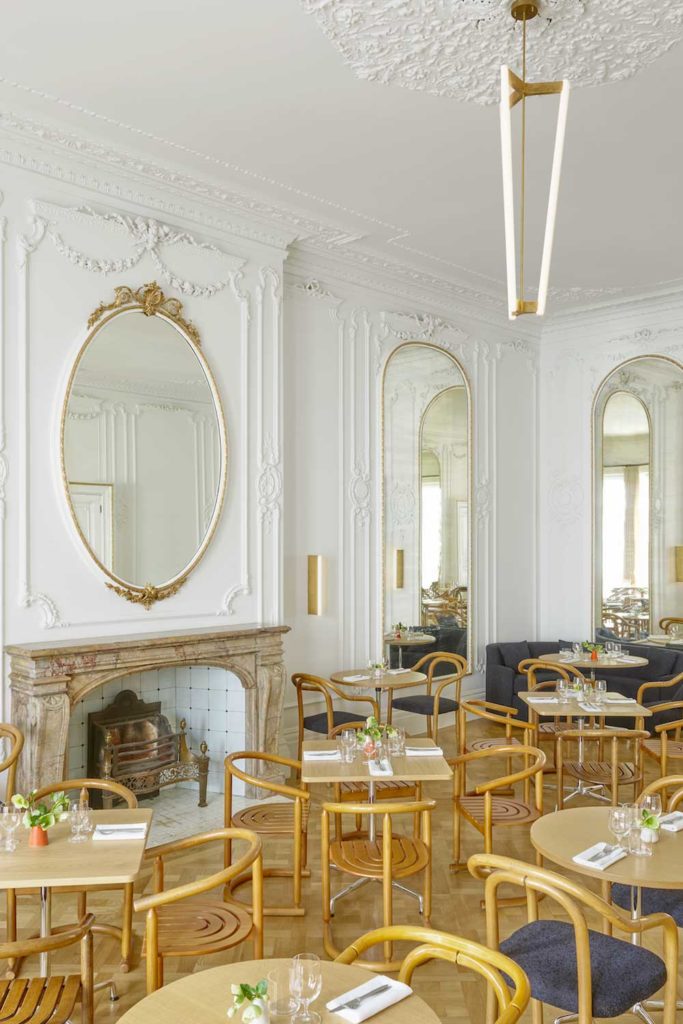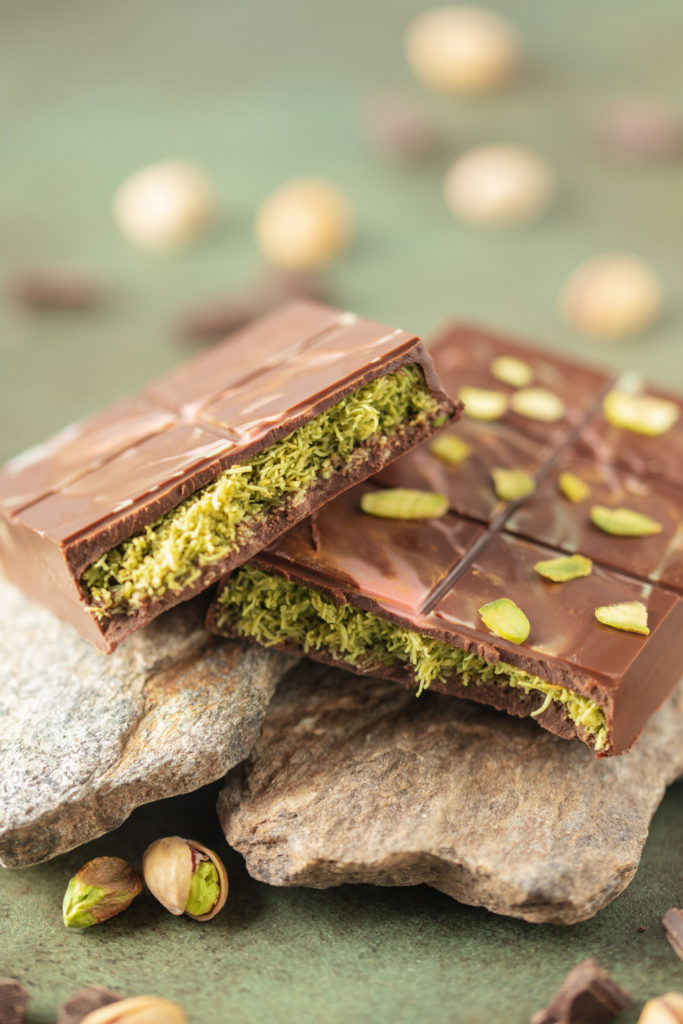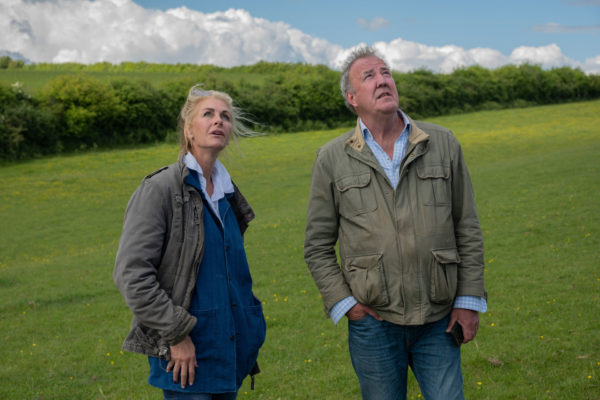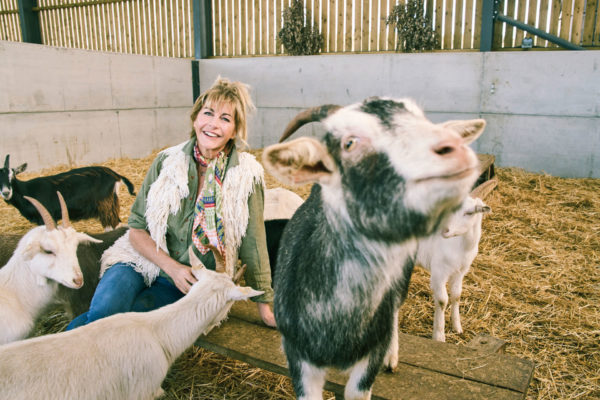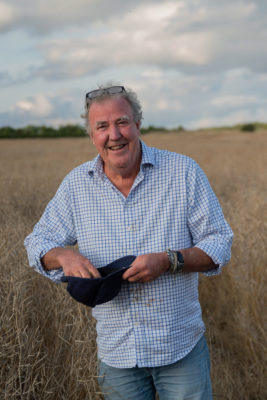A Pub Isn’t An Investment, Jeremy. Your Ex-Co Star James May Can Confirm.
By
7 months ago
Is the Great British Boozer over?
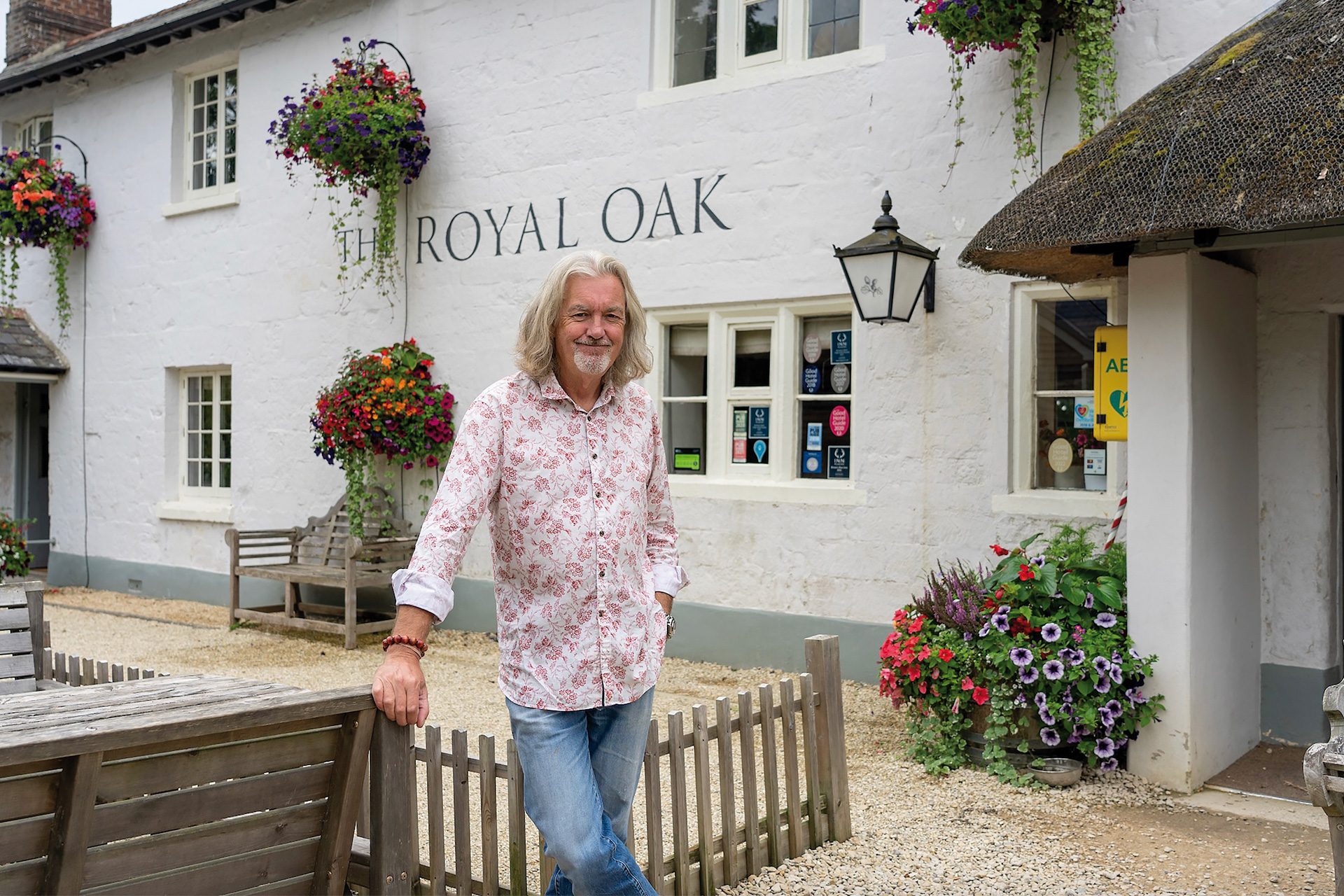
Jeremy Clarkson went on record this week to say he loses £10 for each customer who enters his new pub. He’s not the only publican who feels owning a pub isn’t a profit-turner – his ex-colleague James May can confirm. And they’re shuttering at the rate of blinkers. So is the Great British Boozer over? James doesn’t think so. Tessa Dunthorne ponders it with the star over a pint.
James May: ‘Owning A Pub […] Is Like Owning A Nice Painting – It’s For Self-Gratification, Not Profit’
James May of Top Gear (turned The Grand Tour) fame bought the Royal Oak near his family home in Wiltshire in 2014. It wasn’t his first foray into boozer culture – he started his eponymous gin brand in 2021 – but this was a bigger step. ‘I was a bit browbeaten into buying it, but I also realised that if I didn’t there wouldn’t be a single pub within walking distance of our home. Buying it was the only way to ensure there would be.’
These days, when people buy pubs, they tend to talk about it in the language of dreams. A ‘passion project’, says TV chef Tommy Banks about opening The Abbey Inn in North Yorkshire earlier last year, or ‘indulging my teenage fancy’ (says James). It’s pretty clear that the pub business isn’t big business; about 500 pubs close every single year, according to the British Beer and Pub Association. The word ‘investment’ doesn’t crop up in any conversation – because it quite simply isn’t one.
‘I don’t take any money out of it,’ says James. ‘I take the view that it’s like owning a nice painting or sculpture – you own it for self-gratification.’
Pub ownership in 2024, then, is a bit more of a charitable act (less favourably, you could say it was an act of patronage). It’s not, either, necessarily one relegated to only the likes of the media-monied. The Mardale Inn, in the Lake District, was bought by 500 community investors in 2022 to ensure, like James, that they had access to a decent pub within walking distance to them.
‘The Mardale Inn had been closed for five years before the community bought it, and over Covid, we lost the only other pub in the valley,’ says Phil Sweetland, chair of the community pub. ‘After some early community consultation – village hall meetings – we found 500-plus investors. It’s a community pub first, now, and ultimately maintaining a “community spirit” is what will ensure pubs survive. The pub is the great leveller – enjoyed by folks of all backgrounds.’
Pubs have been vital to British culture for millennia. Alehouses and tabernae were brought over by party-hard Romans, then kept up by Anglo-Saxons after Rome’s decline because, by then, alehouses were havens for communities.
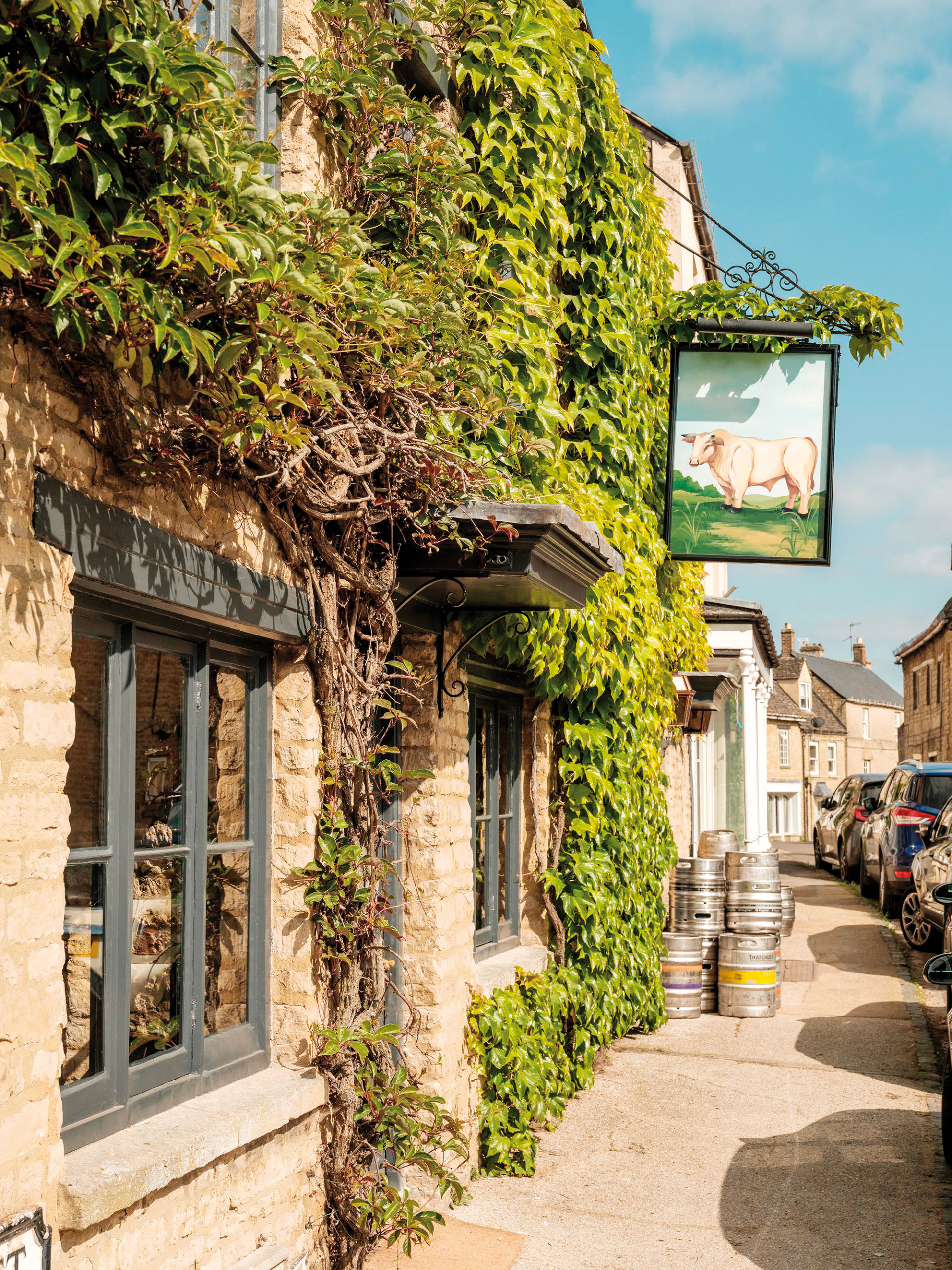
James Gummer, founder and director of the Public House Group (The Pelican, Notting Hill, The Hero, Maida Vale, and The Bull, Charlbury, among a few of his cheery boozers), agrees. ‘Pubs are an integral part of British culture,’ he says, ‘they are our form of hospitality. The French have their brasseries and the Italians their trattorias and we have the pub. They sit on prominent corners in every village, town and city, and they act as these town halls. They’re a meeting place for people to come and feel a part of a community.’
Indeed, as meeting houses, pubs have played host to myriad moments of historical import: the first rumblings of the gunpowder plot took place (allegedly) at the Duck and Drake Inn, off the Strand; playwright Christopher Marlowe met his demise in a bar brawl down in Deptford. They’re so defining of our culture that tourists flock to our oldest pubs and more than two out of five of all international visits to the UK include a trip to the taverna, according to the Morning Advertiser.
But things change: Covid hit and taxes rose, so pubs have tighter margins, and the cost of living impacts pub-goers’ spending. And then, as a nation, we’ve stopped drinking so much – a YouGov survey from 2022 suggests 23 percent of drinkers have reduced their alcohol consumption off the back of increased no/low options. And this is only set to increase: one in three Gen Zers claim to be teetotal (take this with a pinch of salt, though – the youngest in that cohort is 12 years old).
‘Churches disappear if they don’t have a congregation,’ says James. ‘This is similar. But I don’t think pubs are doomed – bad pubs are, people hate me for saying this, but the same people that think pubs should be preserved as part of our heritage also aren’t using them.’
He continues: ‘Decent pubs with nice atmospheres and clean bogs will survive. They will become different to what they were before World War One – or whatever it is that people are romanticising – and they will evolve.’
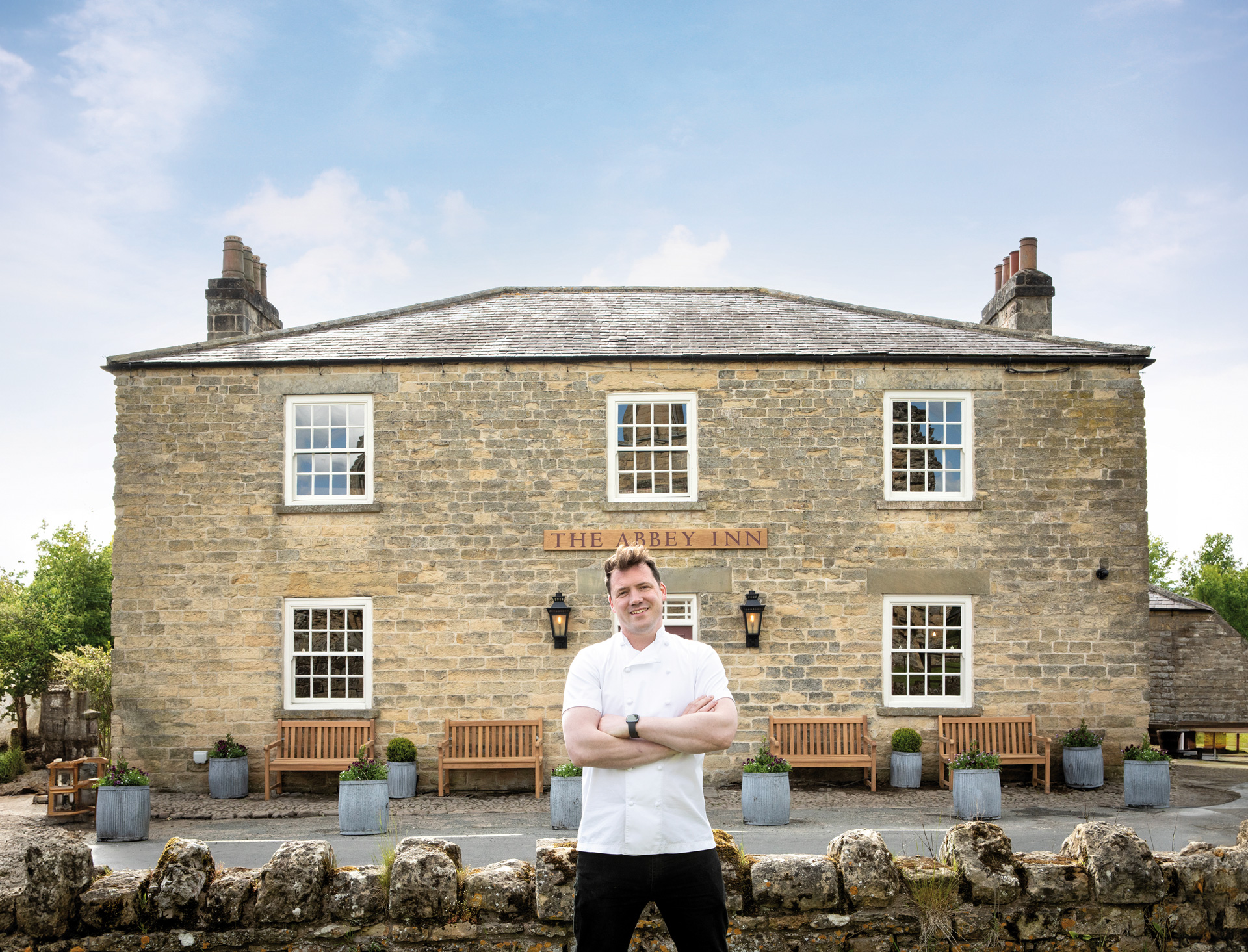
Tommy Banks bought and opened the Abbey Inn in in May 2023, undeterred by the blinding rate of closures by publicans. He partly opened it as a passion project, partly as a gesture towards circularity – in two senses.
‘I was a pot washer here when I was 13,’ he says. ‘It was my first hospitality job. But also we have a farm-to-table ethos [across our restaurants] and for the Black Swan [his Michelin-starred restaurant in Oldstead], for example, you often need to use premium cuts of meat, but we had no outlet for those other cuts. Sometimes you need somewhere you can sell burgers to achieve circularity.’
In his view, the evolution partly comes from diversification of the pub’s offer – primarily food. ‘It’s so important that pub food has the identity of “pub food”,’ he says. ‘That’s why on the menu we’ll have pies, steaks, fish and chips – that sort of thing. Particularly for a countryside pub [like ours]. A wet-led pub really only works in the city with a different clientele.’
James echoes this point. ‘Country pubs are skewed to food and being destinations. We’ve got the best chef in the area.’
So you’ve a gastropub, then? ‘It annoys me when people talk about gastropubs with a sneer,’ he says, ‘when really they just mean a pub where the food is actually decent.’
But: ‘numerically, the best-selling item on our menu is Guy Ritchie’s bitter, by number of units. People still like a proper pint. It’s still a pub, not a restaurant – you can stand at the bar, drink beer and talk bollocks, like you’re supposed to do in a pub.’
So, while the Great British pub might be over its heyday in terms of (the tiny matter of) actual profitability, it seems to remain that to own one is to achieve a childhood dream. And we’re seeing a new surge in popularity of destination pubs – like James mentions – but not just for the food. More than one pub has benefited from the power of social media, cementing crazy cult followings in an ultra-modern way. The Devonshire in Soho, for example, was the buzziest opening of last year, thanks in part to social media stars such as @EatingWithTod (a foodie type with 1.1 million followers), whereas The Black Dog in Vauxhall was swamped with Taylor Swift fans after her latest album referenced a bar of the same name.
Not to mention, these spaces remain culturally important as institutions. Our politicians still run campaigns pulling pints at pubs: it remains a bellwether test of their down-to-earthness if they can correctly price a lager; Keir Starmer ran a campaign in which he repeatedly referenced Kentish Town’s The Pineapple as his local boozer.
There may be less of them, says James, but they’ll be better. The ones with decent bogs. And maybe we’ll pick which to go to on different terms.
‘Pubs will evolve,’ repeats James, ‘like everything else does. And they’ll still be a peculiarly British institution.’
Cheers to that.

